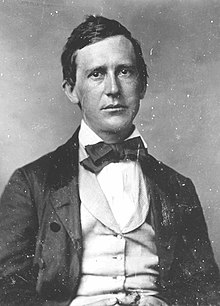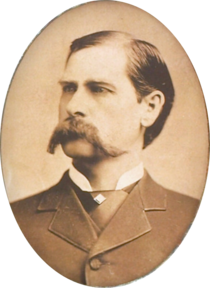January 13 is the 13th day of the year in the Gregorian calendar. There are 352 days remaining until the end of the year (353 in leap years).
It is sometimes celebrated as New Year’s Eve (at least in the 20th & 21st centuries) by ethnic groups and religious orders still using the thirteen-days-adrift Julian calendar (Old New Year).
Holidays
- Christian Feast Day:
- Democracy Day (Cape Verde)
- Korean American Day (some U.S. states)
- Liberation Day (Togo)
- Old New Year‘s Eve (Russia, Belarus, Ukraine, Serbia, Montenegro, Republic of Srpska, Republic of Macedonia)
- Siderealwinter solstice‘s eve celebrations in South and Southeast Asian cultures; the last day of the six-month Dakshinayana period (see January 14):
- St. Knut’s Day or Tjugondag Knut, the last day of Christmas. (Sweden and Finland)
- Tyvendedagen (Norway)
History
In 532, Nika riots in Constantinople.
In 888, Odo, Count of Paris becomes King of the Franks.
In 1435, Sicut Dudum, forbidding the enslavement of the Guanche natives in Canary Islands by the Spanish, is promulgated by Pope Eugene IV.
In 1547, Henry Howard, Earl of Surrey is sentenced to death.
In 1607, The Bank of Genoa fails after announcement of national bankruptcy in Spain.
In 1666, French traveller Jean-Baptiste Tavernier arrived Dhaka and met Shaista Khan.
In 1691, George Fox (July 1624 – 13 January 1691) died. He was an English Dissenter and a founder of the Religious Society of Friends, commonly known as the Quakers or Friends. The son of a Leicestershire weaver, Fox lived in a time of great social upheaval and war. He rebelled against the religious and political authorities by proposing an unusual and uncompromising approach to the Christian faith. He travelled throughout Britain as a dissenting preacher, for which he was often persecuted by the authorities who disapproved of his beliefs. Fox married Margaret Fell, the widow of one of his wealthier supporters; she was a leading Friend. His ministry expanded and he undertook tours of North America and the Low Countries, between which he was imprisoned for over a year. He spent the final decade of his life working in London to organize the expanding Quaker movement. Though his movement attracted disdain from some, others such as William Penn and Oliver Cromwell viewed Fox with respect. His journal, first published after his death, is known even among non-Quakers for its vivid account of his personal journey.
In 1793, Nicolas Jean Hugon de Bassville, representative of Revolutionary France, lynched by a mob in Rome
In 1797, French Revolutionary Wars: A naval battle between a French ship of the line and two British frigates off the coast of Brittany ends with the French vessel running ashore, resulting in the death of over 900.
In 1815, War of 1812: British troops capture Fort Peter in St. Marys, Georgia, the only battle of the war to take place in the state.
In 1822, The design of the Greek flag is adopted by the First National Assembly at Epidaurus.
In 1830, The Great fire of New Orleans, Louisiana begins.
In 1832, President Andrew Jackson writes to Vice President Martin Van Buren expressing his opposition to South Carolina‘s defiance of federal authority in the Nullification Crisis.
In 1840, The steamship Lexington burns and sinks four miles off the coast of Long Island with the loss of 139 lives.
In 1842, Dr. William Brydon, an assistant surgeon in the British East India Company Army during the First Anglo-Afghan War, becomes famous for being the sole survivor of an army of 4,500 men and 12,000 camp followers when he reaches the safety of a garrison in Jalalabad, Afghanistan.
In 1847, The Treaty of Cahuenga ends the Mexican–American War in California.
In 1864, Stephen Foster, American composer and songwriter (b. 1826) died. He known as the “father of American music“, was an American songwriter primarily known for his parlour and minstrel music. Foster wrote over 200 songs; among his best known are “Oh! Susanna,” “Camptown Races,” “Old Folks at Home,” “My Old Kentucky Home,” “Jeanie with the Light Brown Hair,” “Old Black Joe,” and “Beautiful Dreamer.” Many of his compositions remain popular more than 150 years after he wrote them.
In 1869, National convention of black leaders meets in Washington, D.C.
In 1893, The Independent Labour Party of the United Kingdom holds its first meeting.
In 1893, U.S. Marines land in Honolulu, Hawaii from the USS Boston to prevent the queen from abrogating the Bayonet Constitution.
In 1898, Émile Zola‘s J’accuse exposes the Dreyfus affair.
In 1908, The Rhoads Opera House fire in Boyertown, Pennsylvania kills 171 people.
In 1910, The first public radio broadcast takes place; a live performance of the opera Cavalleria rusticana is sent out over the airwaves from the Metropolitan Opera House in New York, New York.
In 1913, Delta Sigma Theta Sorority Incorporated was founded on the campus of Howard University.
In 1915, An earthquake in Avezzano, Italy kills 29,800.
In 1929, Wyatt Earp, American police officer (b. 1848) died this day. He was a gambler, Pima County Deputy Sheriff, and Deputy Town Marshal in Tombstone, Arizona, and took part in the Gunfight at the O.K. Corral during which lawmen killed three outlaw Cowboys. To Wyatt’s displeasure, the 30-second gunfight defined the rest of his life. He is often regarded as the central figure in the shootout in Tombstone, although his brother Virgil was Tombstone City Marshal and Deputy U.S. Marshal that day, and had far more experience as a sheriff, constable, and marshal and in combat. Earp was at different times in his life a city policeman, county sheriff, a teamster, buffalo hunter, bouncer, saloon-keeper, gambler, brothel owner, pimp, miner, and a boxing referee. Earp spent his early life in Iowa. His first wife Urilla Sutherland Earp died while pregnant less than a year after they married. Within the next two years he was arrested, sued twice, escaped from jail, then was arrested three more times for “keeping and being found in a house of ill-fame“. He landed in the cattle boomtown of Wichita, Kansas where he became a deputy city marshal for one year and developed a solid reputation as a lawman. In 1876 he followed his brother James to Dodge City, Kansas where he became an assistant city marshal. In winter 1878, he went to Texas to gamble where he met John Henry “Doc” Holliday whom Earp credited with saving his life.
In 1934, The Candidate of Sciences degree is established in the Soviet Union.
In 1935, A plebiscite in Saarland shows that 90.3% of those voting wish to join Nazi Germany.
In 1939, The Black Friday bush fires burn 20,000 square kilometers of land in Australia, claiming the lives of 71 people.
In 1942, Henry Ford patents a plastic automobile, which is 30% lighter than a regular car.
In 1942, World War II: First use of an aircraft ejection seat by a German test pilot in a Heinkel He 280 jet fighter.
In 1951, First Indochina War: The Battle of Vinh Yen begins, which will end in a major victory for France.
In 1953, An article appears in Pravda accusing some of the most prestigious and prominent doctors, mostly Jews, in the Soviet Union of taking part in a vast plot to poison members of the top Soviet political and military leadership.
In 1958, The Moroccan Army of Liberation ambushes a Spanish patrol in the Battle of Edchera.
In 1964, Anti-Muslim riots break out in Calcutta, resulting in 100 deaths.
In 1964, Karol Wojtyla, the future Pope John Paul II, is appointed archbishop of Kraków, Poland.
In 1966, Robert C. Weaver becomes the first African American Cabinet member when he is appointed United States Secretary of Housing and Urban Development.
In 1968, Johnny Cash performs live at Folsom State Prison
In 1972, Prime Minister Kofi Abrefa Busia and President Edward Akufo-Addo of Ghana are ousted in a bloodless military coup by Colonel Ignatius Kutu Acheampong.
In 1974, Seraphim is elected Archbishop of Athens and All Greece.
In 1978, U.S. Food & Drug Administration requires all blood donations to be labeled “paid” or “volunteer” donors.

In 1978, Hubert Humphrey, American pharmacist, academic, and politician; 38th Vice President of the United States (b. 1911) of bladder cancer at his home in Waverly, Minnesota. His body lay in state in the rotunda of both the United States Capitol and the Minnesota State Capitol, and was interred in Lakewood Cemetery in Minneapolis. Old friends and opponents of Humphrey, from Gerald Ford and Richard Nixon to President Carter and Vice-President Walter Mondale paid their final respects. “He taught us how to live, and finally he taught us how to die”, said Mondale. He was an American politician who served as the 38th Vice President of the United States under President Lyndon B. Johnson, from 1965 to 1969. Humphrey twice served in the United States Senate, representing Minnesota from 1949 to 1964 and 1971 to 1978. He was the nominee of the Democratic Party in the 1968 presidential election, losing to the Republican nominee, Richard Nixon.
Humphrey spent his last weeks calling old political acquaintances. One call was to Richard Nixon inviting him to his upcoming funeral, which he accepted. Staying in the hospital, Humphrey went from room to room, cheering up other patients by telling them jokes and listening to them.
In 1982, Shortly after takeoff, Air Florida Flight 90, a Boeing 737 jet crashes into Washington, D.C.’s 14th Street Bridge and falls into the Potomac River, killing 78 including four motorists.
In 1985, A passenger train plunges into a ravine in Ethiopia, killing 428 in the worst railroad disaster in Africa.
In 1986, A month-long violent struggle begins in Aden, South Yemen between supporters of Ali Nasir Muhammad and Abdul Fattah Ismail, resulting in thousands of casualties.
In 1990, Douglas Wilder becomes the first elected African American governor as he takes office in Richmond, Virginia.
In 1991, Soviet Union troops attack Lithuanian independence supporters in Vilnius, killing 14 people and wounding 1000.
In 1993, Space Shuttle program: Endeavour heads for space for the third time as STS-54 launches from the Kennedy Space Center.
In 2001, An earthquake hits El Salvador, killing more than 800.

In 2010, Teddy Pendergrass, American singer-songwriter (b. 1950) dies of respiratory failure on January 13, 2010, at age 59, with wife Joan by his side, while hospitalized at Bryn Mawr Hospital in suburban Philadelphia. His body was interred at the West Laurel Hill Cemetery in Bala Cynwyd, Pennsylvania. He was an American R&B/soul singer and songwriter. He first rose to fame as lead singer of Harold Melvin & the Blue Notes in the 1970s before a successful solo career at the end of the decade. In 1982, Pendergrass was severely injured in an auto accident in Philadelphia, resulting in his being paralyzed from the chest down. He subsequently founded the Teddy Pendergrass Alliance, a foundation that helps those with spinal cord injuries. He commemorated 25 years of living after his spinal cord injury with the star-filled event, “Teddy 25 – A Celebration of Life”, at Philadelphia’s Kimmel Center. His last performance was on a PBS special at Atlantic City‘s Borgata Casino in November 2008.
In 2012, The passenger cruise ship Costa Concordia sinks off the coast of Italy. There are 31 confirmed deaths with one still missing, Russel Rebello, amongst the 4232 passengers and crew.
In 2012, The opening ceremony of the Winter Youth Olympics takes place in Innsbruck, Austria.
In 2018, A false emergency alert warning of an impending missile strike in Hawaii caused widespread panic in the state.




